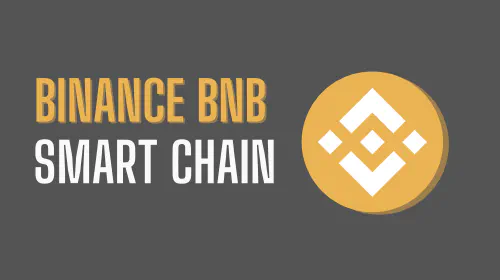The State Of Insuretech In Indonesia: Trends And Developments
Salomon Kisters
Jul 21, 2023This post may contain affiliate links. If you use these links to buy something we may earn a commission. Thanks!
The Indonesian insurance industry has seen significant growth and transformation over the past few years, driven in large part by the emergence of insuretech startups.
These innovative companies are leveraging advancements in technology to disrupt traditional insurance models and offer customers more accessible and personalized insurance solutions.
In this blog post, we will explore the current state of insuretech in Indonesia, highlighting the key trends and developments that are shaping the industry.
The Rise of Digital Insurance Platforms
One of the most prominent trends in the insuretech landscape in Indonesia is the rise of digital insurance platforms. These platforms enable customers to purchase and manage their insurance policies online, eliminating the need for traditional intermediaries. By leveraging digital channels, insurers can reach a larger customer base, reduce administrative costs, and streamline the insurance buying process.
Digital insurance platforms in Indonesia typically offer a wide range of insurance products, including life insurance, health insurance, motor insurance, and property insurance. These platforms leverage technology to provide customers with seamless and convenient user experiences, allowing them to compare different insurance options, customize their coverage, and complete their purchase with just a few clicks.
The Growth of Microinsurance
Another significant development in the insuretech industry in Indonesia is the growth of microinsurance. Microinsurance refers to insurance products that are tailored to the needs and financial capabilities of low-income individuals and small businesses. In a country like Indonesia, where a large portion of the population is still underbanked and lacks access to formal financial services, microinsurance plays a crucial role in providing financial protection against risks.
Insuretech startups in Indonesia have recognized the potential of microinsurance and are actively developing innovative solutions to reach underserved segments of the population. These companies are leveraging mobile technology and digital platforms to offer affordable and easily accessible microinsurance products. For example, some insuretech startups provide microinsurance coverage for farmers to protect against crop failure, or for gig economy workers to cover their income loss in case of accidents or illnesses.
Embracing Artificial Intelligence and Big Data
Artificial intelligence (AI) and big data analytics are revolutionizing the insurance industry in Indonesia, enabling insurers to improve underwriting processes, personalize policy offerings, and detect fraudulent activities. Insuretech companies are leveraging AI algorithms and machine learning techniques to analyze vast amounts of data and make more accurate predictions about insurance risks.
By analyzing data from various sources such as social media, IoT devices, and historical claims data, insurers can gain insights into customer behavior and preferences. This allows them to offer personalized policies that cater to individual needs and encourage customers to adopt healthier behaviors. For example, insurers can offer personalized health insurance premiums based on individuals’ fitness data or reward safe drivers with lower motor insurance premiums.
Additionally, AI-driven chatbots and virtual assistants are being utilized by insuretech startups to enhance customer service and streamline claims processing. These intelligent virtual agents can provide instant assistance and answer customer queries, reducing the need for human intervention and improving overall customer satisfaction.
Collaborations and Partnerships
In order to thrive in a fast-paced and highly competitive market, insuretech startups in Indonesia are increasingly forming collaborations and partnerships with traditional insurance companies and other technology companies. These collaborations enable insuretech companies to leverage the existing customer base and distribution networks of traditional insurers, while traditional insurers can benefit from the innovative technologies and customer-centric approaches of insuretech startups.
For example, some insuretech startups have partnered with traditional insurers to offer their digital insurance products through the insurers’ existing distribution channels. This allows the startups to tap into a wider customer base and reach customers who might be more comfortable purchasing insurance through traditional channels. On the other hand, traditional insurers can leverage the digital expertise of the startups to enhance their online presence and attract tech-savvy customers.
The Regulatory Landscape
The regulatory landscape in Indonesia has also played a significant role in shaping the growth of the insuretech industry. The Financial Services Authority of Indonesia (OJK) has introduced several regulatory frameworks and guidelines to promote innovation and ensure the stability and sustainability of the insurance industry.
These regulatory frameworks provide clarity on licensing requirements, capital adequacy, consumer protection, and data privacy, among other aspects. They create a conducive environment for insuretech startups to operate and grow, while also ensuring that customer interests are protected. By establishing clear rules and guidelines, the regulatory authorities in Indonesia are striking a balance between enabling innovation and maintaining industry standards.
Conclusion
The insuretech industry in Indonesia is experiencing rapid growth and transformation, driven by digital innovation, the rise of microinsurance, and the increasing adoption of AI and big data analytics. Insuretech startups are revolutionizing the way insurance is bought and sold, making it more accessible, personalized, and efficient for customers. Furthermore, collaborations and partnerships between insuretech startups and traditional insurers are fostering innovation and expanding market reach.
As the insuretech industry continues to evolve, it holds great promise for both insurers and customers in Indonesia. It provides insurers with opportunities to expand their customer base and improve operational efficiency, while customers benefit from a wider range of insurance options, enhanced user experiences, and more affordable and tailored coverage. With a supportive regulatory environment and ongoing advancements in technology, the future of insuretech in Indonesia looks brigh
Stay informed with the latest insights in Crypto, Blockchain, and Cyber-Security! Subscribe to our newsletter now to receive exclusive updates, expert analyses, and current developments directly to your inbox. Don't miss the opportunity to expand your knowledge and stay up-to-date.
Love what you're reading? Subscribe for top stories in Crypto, Blockchain, and Cyber-Security. Stay informed with exclusive updates.
Please note that the Content may have been generated with the Help of AI. The editorial content of OriginStamp AG does not constitute a recommendation for investment or purchase advice. In principle, an investment can also lead to a total loss. Therefore, please seek advice before making an investment decision.

What is a BNB Smart Chain Address?
Discover the ins and outs of BNB Smart Chain and Binance. Learn how to create, use, and secure your BNB Smart Chain address today!

Top 8 Blockchain Applications for Documents You Need to Know
Blockchain is not just cryptocurrency! Get an overview of the Top 8 Blockchain Applications that use blockchain for storing, securing, and sharing documents.

Centralized vs. Decentralized Stablecoins: Importance and Impact in Crypto Space
Learn about the differences between centralized and decentralized stablecoins, their importance in the crypto space, and how they contribute to trust and mass adoption of digital assets.
Protect your documents
Your gateway to unforgeable data. Imprint the authenticity of your information with our blockchain timestamp